McQuaid divulges 2017 Worlds contract with Makarov
Former UCI president later withdrew from consultancy role citing conflict of interest
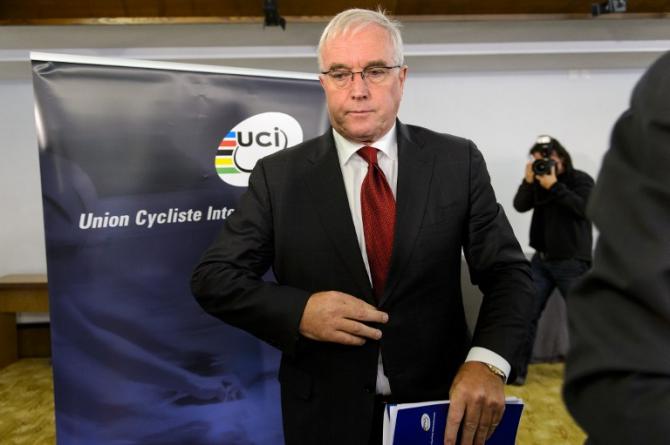
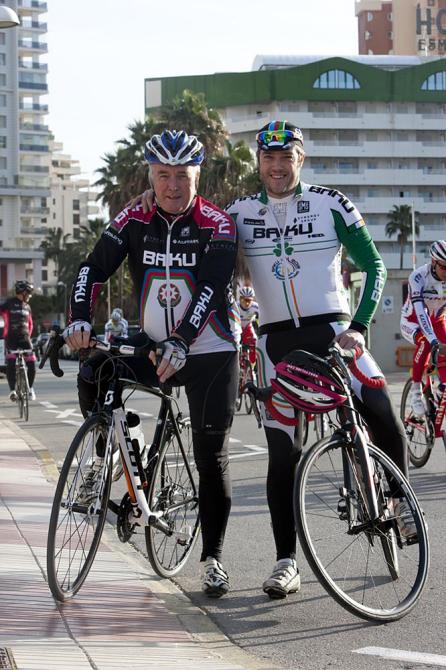
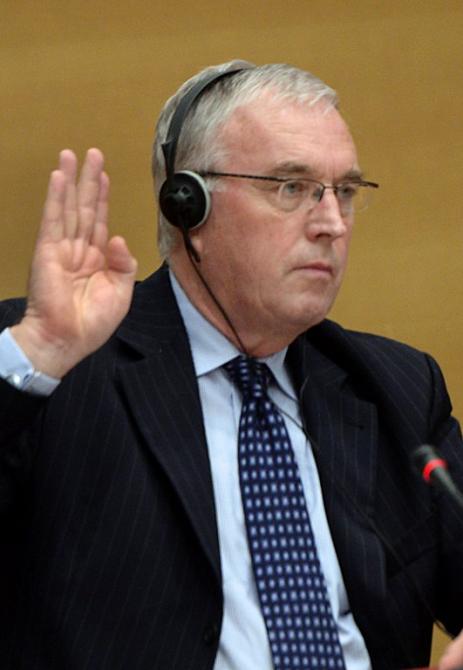
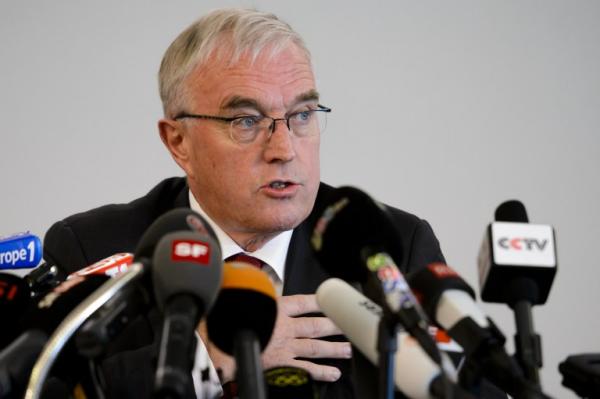
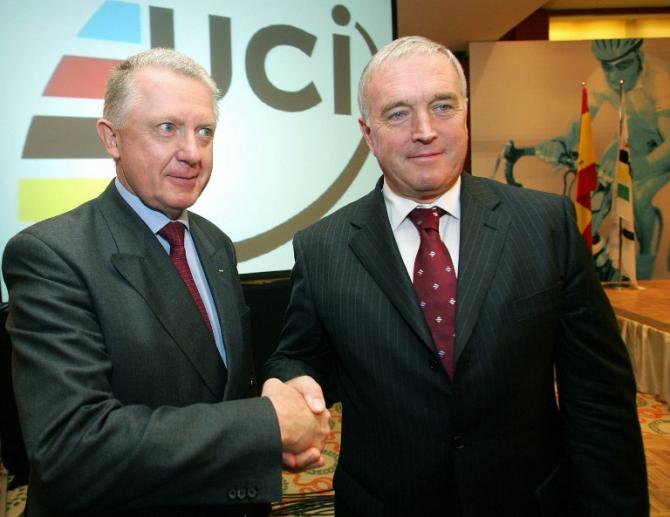
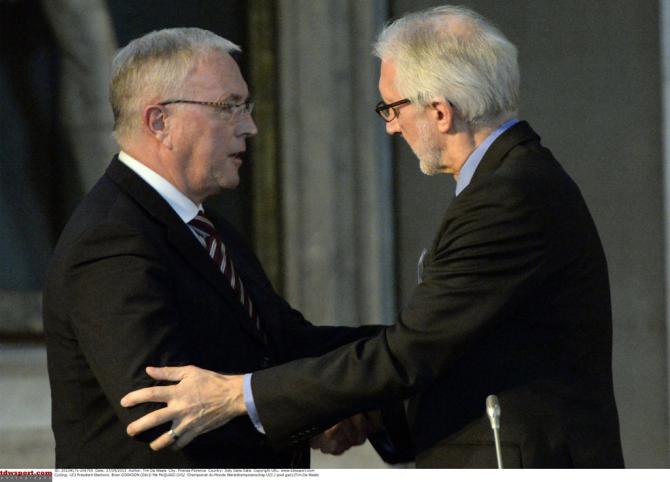
Pat McQuaid has told Cyclingnews that he met with the Cycling Independent Reform Commission (CIRC) on three separate occasions in 2014 and that he has nothing to hide regarding allegations of covered-up doping tests and misconduct at the UCI while he was president from 2005 to 2013.
However, the Irishman has revealed to Cyclingnews that he signed a personal contract with Igor Makarov – the head of the Russian Cycling Federation – in 2012, while still at the head of the UCI. The contract was in relation to a potential World Championships bid from Makarov’s home country of Turkmenistan, and McQuaid, who claims he was considering not standing in the UCI presidential election of 2013, admits that he signed a contract before realizing that it was a potential conflict of interest. McQuaid had previously, before becoming UCI President, acted as a consultant for the 2004 Worlds in Verona, Italy.
“During 2012, as a result of the Lance Armstrong affair and other significant work-related pressures, I strongly considered not standing for re-election as UCI President in 2013,” McQuaid told Cyclingnews.
“During this period, following a number of discussions about the development of cycling in Eastern Europe, Igor Makarov, a fellow UCI Management Committee member, offered me a contract for the future development of cycling in his homeland, Turkmenistan, including the preparation of a bid to bring the UCI Road World Championships there in 2017. I agreed to this contract in July 2012.
“Four months later, however, in October 2012, following a very successful Olympic and Paralympic Games for cycling in London, I reconsidered my position about standing for re-election to the UCI Presidency and so, because of a possible conflict of interest, I informed Mr Makarov that I did not wish to proceed with the contract. I should stress that at no point did I carry out any work relating to this contract, nor did I ever receive any payment relating to this contract.”
McQuaid and Makarov’s relationship soured when the UCI’s Independent License Commission deemed that the Katusha team – run by Makarov – should have their WorldTour License revoked for the 2013 season on ethical grounds. The decision was later overturned by the Court of Arbitration for Sport (CAS) but Makarov’s backing of McQuaid’s presidency was over from that moment.
The Russian became vocal in his support for UCI presidential candidate Brian Cookson and claimed that it would “be devastating if McQuaid was re-elected.”
Get The Leadout Newsletter
The latest race content, interviews, features, reviews and expert buying guides, direct to your inbox!
Makarov also compiled a dossier on McQuaid in the run-up to the election. Although the dossier was never made public, it was alleged to have included several testimonies and allegations of corruption at the heart of the UCI, stretching back to McQuaid’s predecessor, Hein Verbruggen.
McQuaid has now confirmed that the dossier, which was originally presented to the UCI Ethics Commission in 2013 and then handed to CIRC, contained a copy of McQuaid and Makarov’s contract over the preparation of a bid for a future World Championships in Turkmenistan.
McQuaid told Cyclingnews that “the contract came into effect immediately, however, in practice, no work was requested, nor was any work done and no payments were ever made,” and that while the dossier contained the Worlds contract, “it neglected to mention that the contract had been terminated by me.”
It is not known whether there was an overlap in timing between the nullified contract and Katusha’s initial problems in obtaining a WorldTour License for 2013 – however, the UCI License Commission is supposedly independent.
When asked if there was a connection between Katusha’s WorldTour issues and his personal contract with Makarov, McQuaid was unequivocal in his stance: “Absolutely not – my change of heart occurred before that decision. As I said, I reconsidered my position about standing for re-election to the UCI Presidency following a very successful Olympic and Paralympic Games for cycling in London and so, because of a possible conflict of interest, I informed Mr Makarov that I did not wish to proceed with the contract. In any case, the Katusha issue was an independent decision of the License Commission and UCI President could have no influence whatsoever.
“However, given the conflict of interest, I realise that it was a mistake to agree to such a contract for future work while I was still UCI President. However the decision, affecting my future, was made when I considered leaving the UCI. That is the one sincere regret I have of my eight years as UCI President. Indeed, I am proud of my achievements, in particular in relation to anti-doping and the globalisation of my sport during my presidency.”
The full findings of CIRC’s report have yet to be made public. The Commission have reported their findings and passed them to the UCI, who are understood to be studying the documents before releasing a potentially redacted version in the coming weeks.
When asked if CIRC or the UCI could construe the contract between him and Makarov as a potential bribe, McQuaid added: “Mr Makarov was definitely keen to develop cycling in his homeland, which is something I had sympathy with. In hindsight, it is possible that Mr Makarov may also have been trying to increase his influence within the UCI, so I am thankful I had a change of heart, cancelled the contract and never did any work on it, nor got paid.”
McQuaid, having met three times with CIRC, stated that although all of his personal and work related emails and phone calls and text messages had been analysed, no issues of misconduct on his part in relation to doping would be uncovered.
“The CIRC requested that I meet them and I was extremely happy to do so. If they had not approached me, I would certainly have approached them,” McQuaid told Cyclingnews.
“The fight against doping in cycling was my top priority during my two terms as UCI President, between 2005 and 2013. I therefore felt it was imperative that I met the Commission in person to discuss in detail how UCI had dealt with doping cases during my presidency, as well as other issues facing the sport of cycling, and the strategies that I put in place to deal with all of these issues.
“I met the Commission on three separate occasions and discussed in detail the strategies under my watch, in particular the anti-doping policies. I was completely open and transparent in answering all the questions I was asked. I am totally confident that the Commission will not report any wrongdoings, or complicity in covering up any positive doping cases.”
Daniel Benson was the Editor in Chief at Cyclingnews.com between 2008 and 2022. Based in the UK, he joined the Cyclingnews team in 2008 as the site's first UK-based Managing Editor. In that time, he reported on over a dozen editions of the Tour de France, several World Championships, the Tour Down Under, Spring Classics, and the London 2012 Olympic Games. With the help of the excellent editorial team, he ran the coverage on Cyclingnews and has interviewed leading figures in the sport including UCI Presidents and Tour de France winners.
